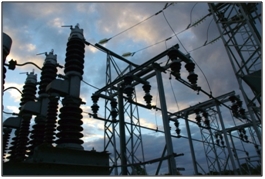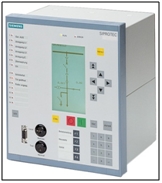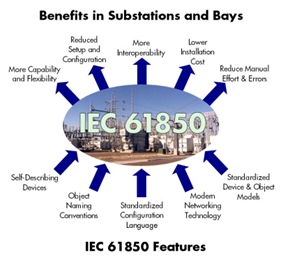Today, most of the Power Distribution network is either radial or interconnected in nature. The main reason for the distribution network being radial is cost effectiveness & easiness in maintenance. Most of the devices used in the radial distribution network include fuses, auto reclosers & over-under current relays.
The main purpose of these devices is to keep the power distribution network as simple as possible. Reclosers are normally used for maintenance of lines or for clearance of faults. When a fault occurs, reclosers operate in order to isolate the system under fault so that fault current has a path to clear itself without affecting the rest of the system. On the other hand fuses are used for prevention of faults from transient currents. Fuses operate on the events when auto reclosers fail to clear the faults. In case of any fault fuse, nearest to the fault will open to clear the fault. However, if the first fuse fails the immediate fuse after the first one opens to clear the fault. All of these devices work in unison to protect & isolate distribution network under faults.
Goals of Protection
The main reason for designing a protected power system is to isolate the faults & the components affected as a result of the fault. The equation is to protect the remaining operating network besides clearing the fault. This post will discuss the components as well as the techniques which are used for their protection.
Constituents
- Current & Voltage Transformers are used for both the metering & protection at substations. The purpose of these transformers is to limit the voltage & current so that it could be used by relays for operation
- Relays are intelligent devices that initiate a trip sequence when any specific parameter goes beyond normal range
- Circuit Breakers operate on the trip sequence initiated by the relays in order to open the circuit
- Batteries are used as back up power supply in the event of mains supply failure
Protective Devices
The main function over here is to cater to the issue of tripping of circuit breakers. These devices also oversee that the automated operation is maintained.
Another related task for the protective devices is for monitoring the system and this is about collecting the data. The most important parameter in this regard is the operating quality. The cost of protection is directly dependent on the kind of device in use.
Types of protection
- In Generator Sets: The main purpose of using protective relays is for ensuring that no damage comes to the alternators. Many transformers can be damaged due to internal failures, and these relays protect against them too
- In High Voltage Transmission Network: In this case, the protection levels include the entire plant and also the public too. When there is an occurrence of any overload, the device is disconnected
- In overload and back up for distance: These protective relays are used to cater to the instantaneous overcurrent and time overcurrent
- Earth Fault Protection: This detection allows catering any imbalance in a three phase circuit. If the imbalance is more than the predetermined calculation, the circuit would break
- Distance Protection: This form of protection is useful in the case of large length lines. The protection offered in this case is that of current differential protection
- Backup Protection: The intention of the protective control is to cater to the affected area and not the entire system. Through local back up protection, it is possible to target only the affected area instead of the complete plant as is the case with remote back up protection
The task of coordination is conducted out to minimize the possibility of an outage. This method is now being done on computers and involves analysis and also reporting.
Recently, IEC 61850 protocol has gained popularity for increasing the reliability & efficacy of communication between substation telemetry & protection devices.
Disturbance monitoring equipment
The purpose of such equipment is three fold. On the first level it has to validate the model. Secondly it has to investigate any possible occurrence of disturbance. Then lastly, there is the notion of assessment of system protection performance.
This device has some major parts like event recorders, fault recorders and dynamic disturbance recorders. The name is indicative of their functions.
Corrective Analysis
There is a specific analysis known as the fault tree analysis which can be used for the comparative analysis of identities like dependability and security. In order to improve the protection of the system, it is important to quantify the reliability aspect.
Future of Power System Protection
With the continuous increase in demand for power within the last few decades; power quality & stability have become a great concern for design engineers. Protection System plays a key role in achieving these targets. Modern protection systems are designed to cater the needs of utilities & industries. Some of the latest power plant topologies include Smart Grids, IEC 61850 protocol for reliable, simple, fast & efficient communication between protection systems at substations and Distributed Generation which has an overall benign influence on the stability & efficacy of transmission & distribution network. Power System Protection is the epergne of any power system network & its reliability is of critical importance. Fast, reliable & accurate protection techniques will always be needed to ensure the integrity of the power system.
Any remarks about the power system protection?


